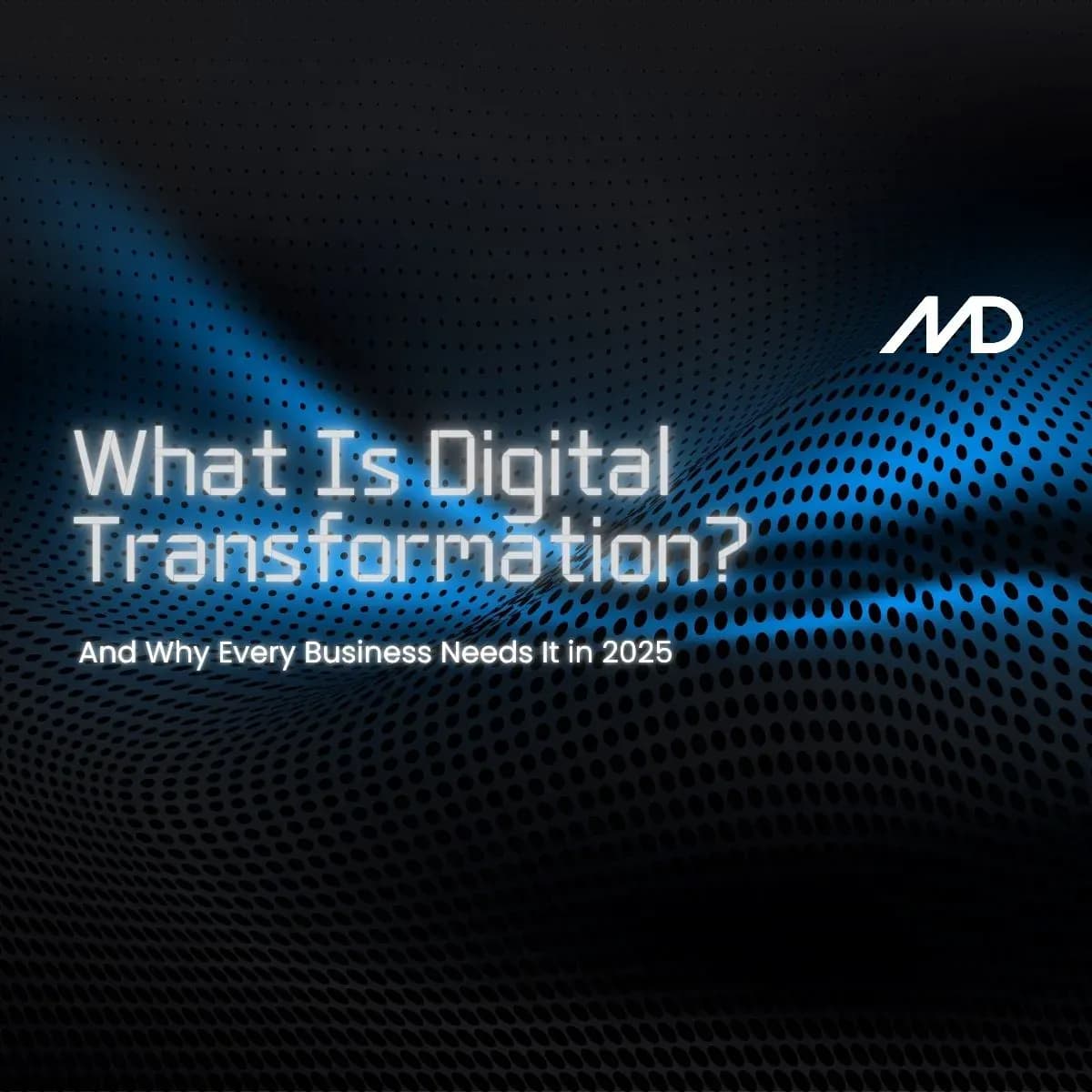What Is Digital Transformation (and Why Every Business Needs It in 2025)

Introduction
Digital transformation isn’t just a buzzword anymore; it’s how businesses evolve. In 2025, every company is shaped by technology. From how you attract clients to how you manage operations, your digital presence now defines your growth. But what does digital transformation really mean, and why is it so important?
What Digital Transformation Really Means
Digital transformation is about using technology to simplify and connect every part of your business. It’s not just about building a website or running ads. It’s about making your whole system smarter: • Your website acts as your best salesperson, available 24/7. • Your CRM follows up with leads automatically. • Analytics show what’s working and what’s not. • Your admin tasks run quietly in the background. Your business doesn’t just go online — it starts running more efficiently.
Why It Matters in 2025
The way people buy, search and interact has changed completely. In 2025, customers expect instant answers, mobile access, and seamless experiences. Businesses that don’t adapt risk falling behind. Here’s why digital transformation is now essential: • Customers expect speed and personalisation. • Automation saves time and reduces errors. • Data helps you make smarter decisions. • Scalable systems allow your business to grow without extra stress.
The Four Pillars of Digital Transformation
- Automation – Streamline repetitive tasks using smart tools.
- Integration – Make your systems communicate with each other.
- Customer Experience – Create simple, fast, and enjoyable interactions.
- Analytics – Use real data to guide decisions and improvements.
Where to Start
You don’t need to overhaul everything at once. Start small:
- Update your website to make it perform better.
- Add automation for forms, bookings, or invoicing.
- Connect your systems so data flows smoothly.
- Review analytics and improve step by step. Small changes can have a big impact over time.
Final Thoughts
Digital transformation isn’t about replacing people; it’s about giving them the tools to work smarter. When your systems handle the routine work, you have more time for creativity, strategy, and growth. Now is the best time to modernise your business and move forward with confidence.
